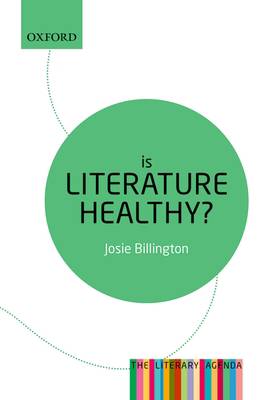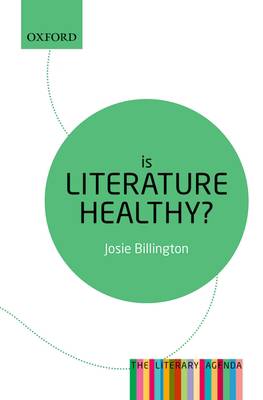
Je cadeautjes zeker op tijd in huis hebben voor de feestdagen? Kom langs in onze winkels en vind het perfecte geschenk!
- Afhalen na 1 uur in een winkel met voorraad
- Gratis thuislevering in België vanaf € 30
- Ruim aanbod met 7 miljoen producten
Je cadeautjes zeker op tijd in huis hebben voor de feestdagen? Kom langs in onze winkels en vind het perfecte geschenk!
- Afhalen na 1 uur in een winkel met voorraad
- Gratis thuislevering in België vanaf € 30
- Ruim aanbod met 7 miljoen producten
Zoeken
€ 27,45
+ 54 punten
Omschrijving
The Literary Agenda is a series of short polemical monographs about the importance of literature and of reading in the wider world and about the state of literary education inside schools and universities. The category of "the literary" has always been contentious. What is clear, however, is how increasingly it is dismissed or is unrecognised as a way of thinking or an arena for thought. It is sceptically challenged from within, for example, by the sometimes rival claims of cultural history, contextualized explanation, or media studies. It is shaken from without by even greater pressures: by economic exigency and the severe social attitudes that can follow from it; by technological change that may leave the traditional forms of serious human communication looking merely antiquated. For just these reasons this is the right time for renewal, to start reinvigorated work into the meaning and value of literary reading. Medical Humanities comprises disciplines as diverse as literature, the visual and performing arts, the history of medicine, bioethics. It claims a vast range of philosophical and political agendas, goals and purposes, including the education of medical students in areas of clinical empathy, critical thinking, ethical awareness, gender and race issues and cross-cultural medicine. Josie Billington argues that in so far as literature is offered as adding value to medical education in health training and practice, that defence tends to become instrumental in nature, whether consciously and explicitly, or otherwise. This book is interested, more widely, in the power of the arts as a remedial force. Following an introduction surveying the idea of the Medical Humanities, its history, and its development, the book's four chapters will look at illness and health as defined in medical terms and as complicated within the field of imaginative literature; at narrative and storytelling within the therapeutic meeting of medical and literary approaches; at reading groups and private reading, considering contemporary models of literary reading as a template for redefining literature's place and power not only within the discipline of Medical Humanities but within the wider world in relation to concerns of mental wellbeing that affect us all.
Specificaties
Betrokkenen
- Auteur(s):
- Uitgeverij:
Inhoud
- Aantal bladzijden:
- 160
- Taal:
- Engels
- Reeks:
Eigenschappen
- Productcode (EAN):
- 9780198724698
- Verschijningsdatum:
- 30/11/2016
- Uitvoering:
- Paperback
- Formaat:
- Trade paperback (VS)
- Afmetingen:
- 130 mm x 193 mm
- Gewicht:
- 158 g

Alleen bij Standaard Boekhandel
+ 54 punten op je klantenkaart van Standaard Boekhandel
Beoordelingen
We publiceren alleen reviews die voldoen aan de voorwaarden voor reviews. Bekijk onze voorwaarden voor reviews.









